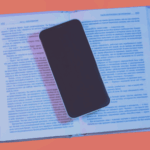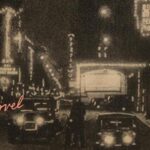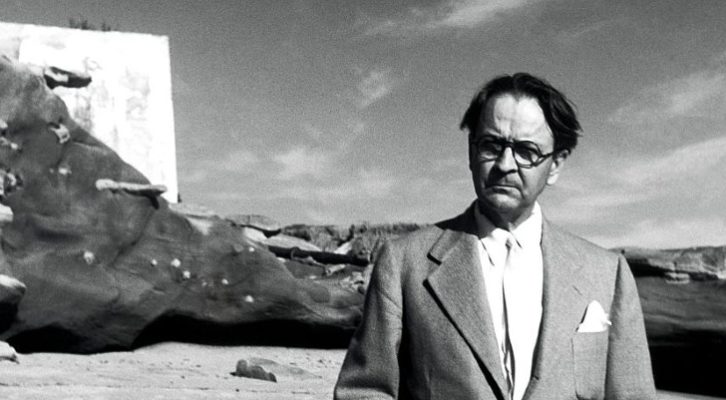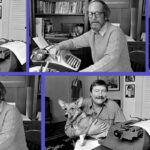Werner Herzog on Volcanoes, North Korea, and the Internet
Paul Holdengraber in Conversation with the Man Who Once Ate His Shoe
In part one of Werner Herzog’s wide-ranging conversation with Paul Holdengraber, the two discuss the human side of massive volcanoes, making promises to North Koreans, and that thing known as the Internet.
Werner Herzog on the human side of volcanoes…
La Soufrière was fascinating for me not so much because of the volcano. Of course, there was an imminent danger. It was known it would explode at any moment with a force of many atomic bombs, Hiroshima-size, but I was fascinated with the human side of it: 75,000 people were evacuated very abruptly within hours, they all fled and were evacuated, but one single farmer stayed behind. He refused to be evacuated. It is about what makes him stay, what is his attitude towards death. In a way, the film on volcanoes I did now is very much about the human side. For example in the Vanuatu Archipelago, which is a group of islands in the Southwestern Pacific in Melanesia, people there, the villagers there, developed a new god, a new deity: John Frum, apparently some sort of mythical American GI who would return and bring all the goods, all the cargo of the modern consumer civilization: chewing gum, and fridges, and maybe even a Cadillac, or a jukebox. And he’s considered a god who dwells now in the crater itself which is ferociously boiling and exploding all the time. There seems to be a schism in the church. There seem to be some believers who think John Frum comes through vines under the Pacific and enters through the volcano and through a portal into our world.
Werner Herzog on filming in North Korea…
The North Koreans apparently had seen quite a few of my films. I established a trust with them. It’s very strange because you’re accompanied by people who would look after what you were doing, who would politely tell you you cannot film this, or cannot film that, and at one point I filmed something which I was not allowed to do, so I wanted to have it edited or deleted. But since they are filming in 4K or 5K or so, very complicated data management, we were unable to delete it, and they wanted to take the entire memory hard drive. And I said, “But it contains two days worth of shooting, that would be terrible.” So I said, “You know what, I can guarantee to you that I’m not going to use this material.” And they said, “Guarantee, what do you mean by that?” I said, “Just look me in the eye, what I offer is my honor, my face, and my handshake.” And they said “ok” and they trusted me. And of course I’m not going to use this moment of filming that I was not supposed to film.
Werner Herzog on what he’s reading right now…
I read a lot, of course. Yesterday I read all day long. It’s a strange, strange selection of things. Yesterday almost all day long, Lapham’s Quarterly which I love, their issue on time. Unbelievably beautiful and very deep. And of course it’s a selection of statements on time. For example, St. Augustine or modern scientists or poets… I just reread Pedro Paramo, the best, best piece of literature of Latin America, Mexico, actually. [The author, Juan Rulfo] wrote the book in 1955 and still the best you have in Mexican literature or all of Latin American literature. It’s only 120 pages, and he only wrote one other book of short stories, El Llano en llamas, The Plains in Fire and Flame. So that’s one thing I wanted to re-visit.
Werner Herzog on his film Lo and Behold…
Why should I do a film on the internet? In fact, I was approached by a company called Netscout which organizes and keeps flowing gigantic streams of data and keeps it free of trouble and hackers and anomalies and so on, and first I thought they wanted to do some sort of commercial. I said, I’m not comfortable doing some sort of commercial, because I don’t like the world of consumerism. I do not want to participate. They said “No, no, no,” it should be originally a few short five minute clips for YouTube. And I’m interested in new media like YouTube. My film “Texting While Driving” on YouTube had phenomenal resonance and phenomenal effects, so I said “Let’s do it.” But after two days of shooting, it was clear it had to be a longer film, much more in-depth, much more expansive. While you watch a film you can see how I’m expanding my own knowledge because my knowledge of the internet is very limited. So while you’re watching you can see how I’m stretching out my feelers, how I dig into things, how I get more and more, deeper and deeper into fascination. So part of the charm of the film is how I get sucked into it by pure raw curiosity.




















